Alfa Romeo Junior vs Porsche Taycan Wagon – Differences & prices compared
Everyday use, family trips or long-distance drives – here’s where the differences show.
Discover whether Alfa Romeo Junior or Porsche Taycan Wagon fits your lifestyle better.
Costs and Efficiency:
When it comes to price and running costs, the biggest differences usually appear. This is often where you see which car fits your budget better in the long run.
Alfa Romeo Junior has a clearly advantage in terms of price – it starts at 25700 £, while the Porsche Taycan Wagon costs 88700 £. That’s a price difference of around 63043 £.
In terms of energy consumption, the advantage goes to the Alfa Romeo Junior: with 15.10 kWh per 100 km, it’s somewhat more efficient than the Porsche Taycan Wagon with 17.50 kWh. That’s a difference of about 2.40 kWh.
As for range, the Porsche Taycan Wagon performs noticeable better – achieving up to 652 km, about 242 km more than the Alfa Romeo Junior.
Engine and Performance:
Power, torque and acceleration are the classic benchmarks for car enthusiasts – and here, some clear differences start to show.
When it comes to engine power, the Porsche Taycan Wagon has a decisively edge – offering 952 HP compared to 280 HP. That’s roughly 672 HP more horsepower.
In acceleration from 0 to 100 km/h, the Porsche Taycan Wagon is clearly quicker – completing the sprint in 2.40 s, while the Alfa Romeo Junior takes 5.90 s. That’s about 3.50 s faster.
In terms of top speed, the Porsche Taycan Wagon performs distinct better – reaching 260 km/h, while the Alfa Romeo Junior tops out at 206 km/h. The difference is around 54 km/h.
There’s also a difference in torque: Porsche Taycan Wagon pulls clearly stronger with 1110 Nm compared to 345 Nm. That’s about 765 Nm difference.
Space and Everyday Use:
Whether family car or daily driver – which one offers more room, flexibility and comfort?
Seats: Alfa Romeo Junior offers a bit more seating capacity – 5 vs 4.
In curb weight, Alfa Romeo Junior is decisively lighter – 1380 kg compared to 2190 kg. The difference is around 810 kg.
In terms of boot space, the Porsche Taycan Wagon offers minimal more room – 446 L compared to 415 L. That’s a difference of about 31 L.
In maximum load capacity, the Alfa Romeo Junior performs barely noticeable better – up to 1280 L, which is about 68 L more than the Porsche Taycan Wagon.
When it comes to payload, Porsche Taycan Wagon evident takes the win – 605 kg compared to 420 kg. That’s a difference of about 185 kg.
Who comes out on top?
Overall, the Porsche Taycan Wagon shows itself to be is largely superior and secures the title of DriveDuel Champion.
It convinces with the more balanced overall package and proves to be the more versatile choice for everyday use.
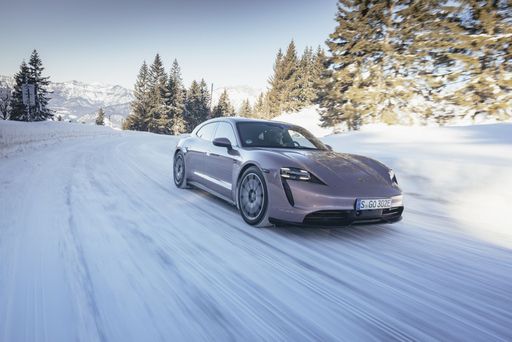 @ Dr. Ing. h.c. F. Porsche AG
@ Dr. Ing. h.c. F. Porsche AG
Porsche Taycan Wagon
Alfa Romeo Junior
The Alfa Romeo Junior captures the essence of Italian design with its sleek lines and compact dimensions, making it an icon of elegance and performance. With a spirited driving experience and a charming retro aesthetic, it appeals to enthusiasts and casual drivers alike. This delightful car embodies the brand's rich heritage while remaining a fun and engaging option for those seeking a unique automotive experience.
details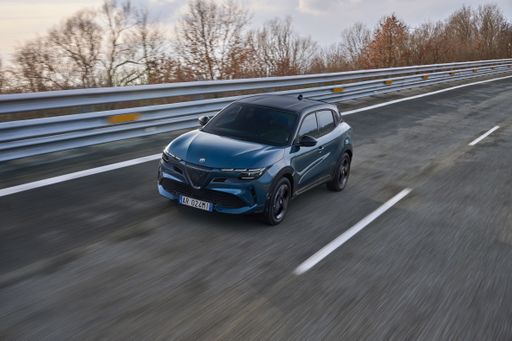 @ Alfa Romeo / Stellantis Media
@ Alfa Romeo / Stellantis Media
 @ Alfa Romeo / Stellantis Media
@ Alfa Romeo / Stellantis Media
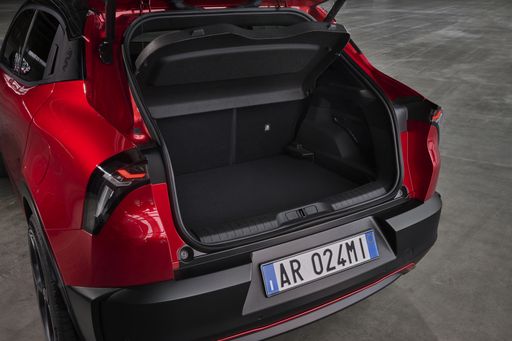 @ Alfa Romeo / Stellantis Media
@ Alfa Romeo / Stellantis Media
Porsche Taycan Wagon
The Taycan Wagon seamlessly blends the elegance of a luxury estate with the exhilarating performance Porsche is renowned for. Its sleek design not only boasts practicality but also exudes a sporty flair, making it a standout in both city streets and open highways. With a commitment to sustainability, this electrifying model illustrates that eco-friendly driving can be both thrilling and stylish.
details @ Dr. Ing. h.c. F. Porsche AG
@ Dr. Ing. h.c. F. Porsche AG
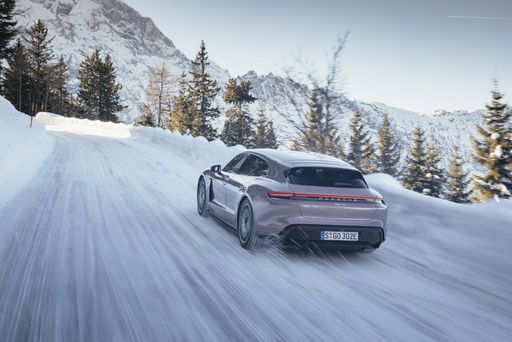 @ Dr. Ing. h.c. F. Porsche AG
@ Dr. Ing. h.c. F. Porsche AG
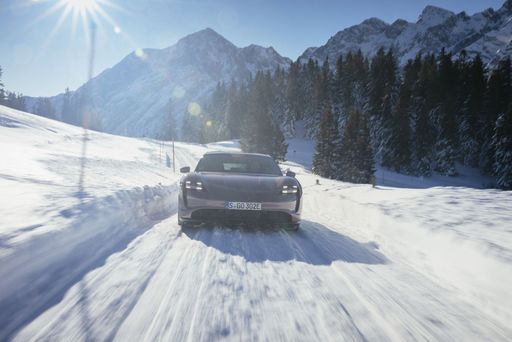 @ Dr. Ing. h.c. F. Porsche AG
@ Dr. Ing. h.c. F. Porsche AG
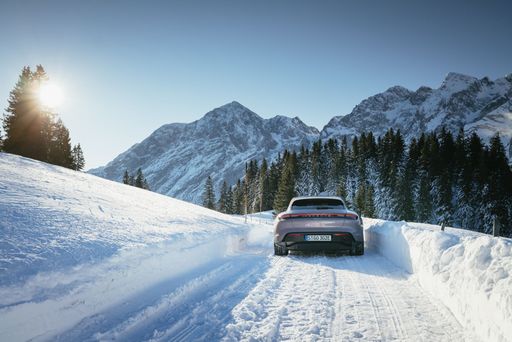 @ Dr. Ing. h.c. F. Porsche AG
@ Dr. Ing. h.c. F. Porsche AG
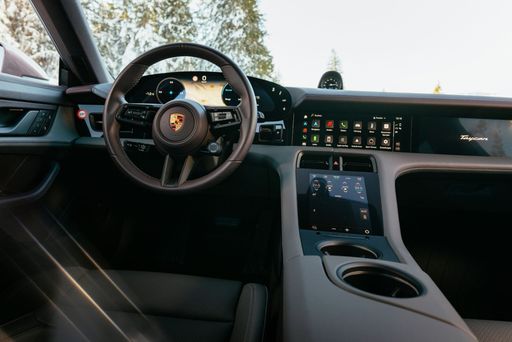 @ Dr. Ing. h.c. F. Porsche AG
@ Dr. Ing. h.c. F. Porsche AG
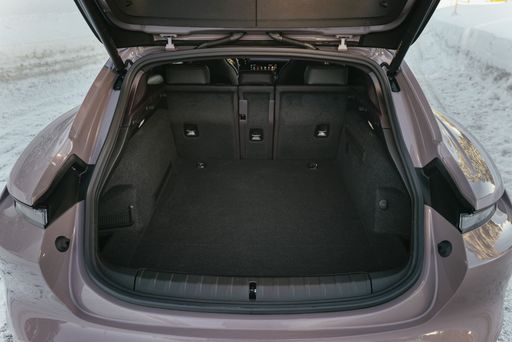 @ Dr. Ing. h.c. F. Porsche AG
@ Dr. Ing. h.c. F. Porsche AG
 @ Alfa Romeo / Stellantis Media
@ Alfa Romeo / Stellantis Media
|
 @ Dr. Ing. h.c. F. Porsche AG
@ Dr. Ing. h.c. F. Porsche AG
|
|
|
|
Costs and Consumption |
|
|---|---|
|
Price
25700 - 41600 £
|
Price
88700 - 182100 £
|
|
Consumption L/100km
4.8 - 5.4 L
|
Consumption L/100km
-
|
|
Consumption kWh/100km
15.1 - 17.5 kWh
|
Consumption kWh/100km
17.5 - 19 kWh
|
|
Electric Range
344 - 410 km
|
Electric Range
537 - 652 km
|
|
Battery Capacity
0.4 - 51 kWh
|
Battery Capacity
82.3 - 97 kWh
|
|
co2
0 - 119 g/km
|
co2
0 g/km
|
|
Fuel tank capacity
44 - 45 L
|
Fuel tank capacity
-
|
Dimensions and Body |
|
|---|---|
|
Body Type
SUV
|
Body Type
Estate
|
|
Seats
5
|
Seats
4
|
|
Doors
5
|
Doors
5
|
|
Curb weight
1380 - 1689 kg
|
Curb weight
2190 - 2400 kg
|
|
Trunk capacity
340 - 415 L
|
Trunk capacity
405 - 446 L
|
|
Length
4173 mm
|
Length
4962 - 4974 mm
|
|
Width
1781 mm
|
Width
1966 - 1967 mm
|
|
Height
1505 - 1538 mm
|
Height
1388 - 1412 mm
|
|
Max trunk capacity
1205 - 1280 L
|
Max trunk capacity
1171 - 1212 L
|
|
Payload
390 - 420 kg
|
Payload
475 - 605 kg
|
Engine and Performance |
|
|---|---|
|
Engine Type
Electric, Petrol MHEV
|
Engine Type
Electric
|
|
Transmission
Automatic
|
Transmission
Automatic
|
|
Transmission Detail
Dual-Clutch Automatic, Reduction Gearbox
|
Transmission Detail
Reduction Gearbox
|
|
Drive Type
Front-Wheel Drive, All-Wheel Drive
|
Drive Type
All-Wheel Drive, Rear-Wheel Drive
|
|
Power HP
136 - 280 HP
|
Power HP
408 - 952 HP
|
|
Acceleration 0-100km/h
5.9 - 9.1 s
|
Acceleration 0-100km/h
2.4 - 4.8 s
|
|
Max Speed
150 - 206 km/h
|
Max Speed
220 - 260 km/h
|
|
Torque
230 - 345 Nm
|
Torque
410 - 1110 Nm
|
|
Number of Cylinders
3
|
Number of Cylinders
-
|
|
Power kW
100 - 207 kW
|
Power kW
300 - 700 kW
|
|
Engine capacity
1199 cm3
|
Engine capacity
-
|
General |
|
|---|---|
|
Model Year
2024 - 2025
|
Model Year
2024 - 2025
|
|
CO2 Efficiency Class
A, C, D
|
CO2 Efficiency Class
A
|
|
Brand
Alfa Romeo
|
Brand
Porsche
|
What drive types are available for the Alfa Romeo Junior?
Available configurations include Front-Wheel Drive or All-Wheel Drive.
The prices and data displayed are estimates based on German list prices and may vary by country. This information is not legally binding.
